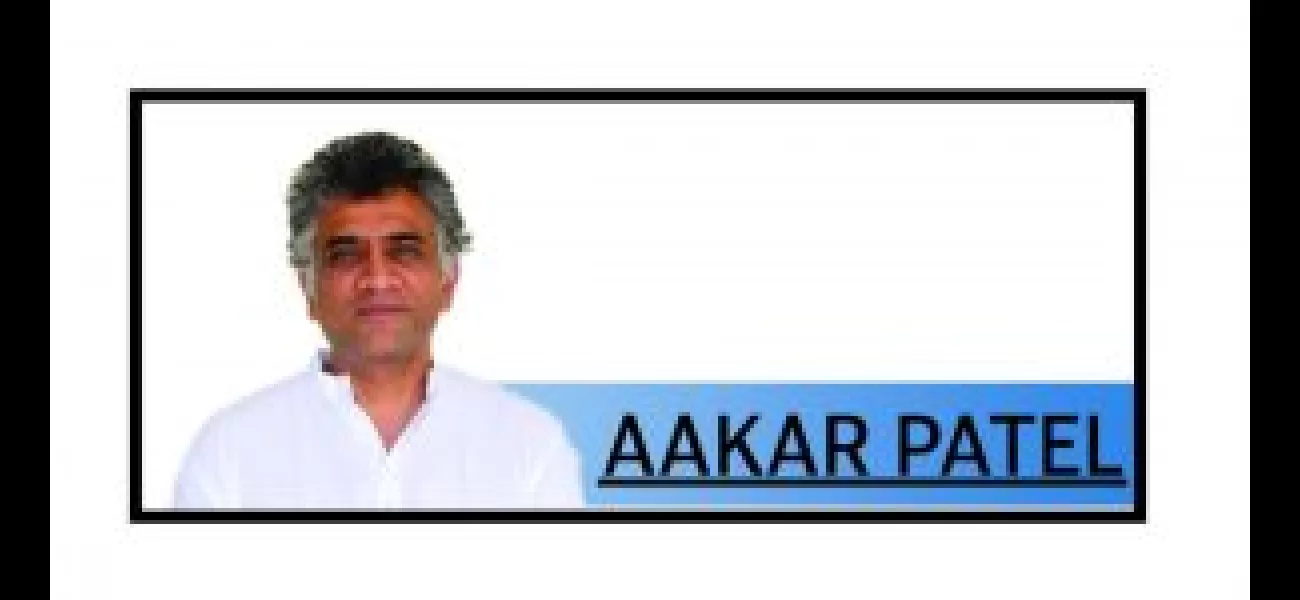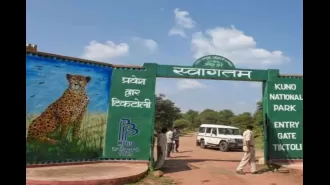Cabinet with both modern and traditional features, blending new and old styles for a unique and versatile look.
India's new government has retained the same Cabinet members for Home, Finance, Foreign Affairs, and Defence, known as the Committee on Security.
June 16th 2024.

India's latest government has announced its new Cabinet, which consists mostly of familiar faces from the previous Cabinet. The key positions of Home Affairs, Finance, Foreign Affairs, and Defense will continue to be held by Amit Shah, Nirmala Sitharaman, S Jaishankar, and Rajnath Singh, respectively. These four are known as the Committee on Security and are considered to be the most important by the government. Other notable ministers, such as Nitin Gadkari, Ashwini Vaishnaw, Piyush Goyal, and Arjun Ram Meghwal, will also be returning to their previous roles.
While some ministers have been shifted to different portfolios, their names will still be familiar to readers. Kiren Rijiju, Jyotiraditya Scindia, and Giriraj Singh are just a few examples. However, there are also some notable absences from the new Cabinet, such as Smriti Irani and Rajiv Chandrashekhar, who lost in high-profile elections.
The reasons for the reshuffling of some ministers who have been retained are not clear. It is possible that this was done to accommodate allies like the Telugu Desam Party, Janata Dal Secular, Janata Dal United, LJP, and Shiv Sena. Another reason could be to bring in former BJP Chief Ministers, such as Shivraj Singh Chauhan of Madhya Pradesh and Manohar Khattar of Haryana.
Overall, the new Cabinet looks more like a minor reshuffle rather than a completely new one. In the past, this would have been reported as secondary news, but the question remains - why does this version 3.0 look so similar to version 2.0? The obvious answer is that there was no need for major changes, as everything seems to be running smoothly. After all, change is only necessary when there is a need to correct course. And since the BJP won the election, it seems that there is no need for such changes.
However, it is worth noting that if the BJP had lost the election and was now in the opposition, there would be no BJP Cabinet at all. So, it is unclear what the middle ground would have been in such a situation and what conditions would have triggered a change. Therefore, it is unlikely that the reason for the lack of major changes is simply because "all is well". Perhaps the real reason is a lack of talented individuals within the party who are capable of taking on important roles. However, this is not a likely explanation, as under this Prime Minister, the PMO functions as a mini Cabinet and intervenes in critical issues.
Another possibility is the reluctance or inability to admit that something went wrong. In a speech given by the Prime Minister on February 5th, he confidently predicted that the NDA alliance would win more than 400 seats in the election, with the BJP alone securing 370 seats. However, as we now know, this did not happen. In fact, for the first time in his career, the Prime Minister is leading a minority government. This raises the question - is this a defeat? The Opposition and its supporters certainly seem to think so, as they are behaving as if they have won. The fact that the new government is unstable and dependent on external support is not lost on them. As political analyst Yogendra Yadav has pointed out, the acceptability and prestige that the BJP enjoyed in the last decade is now gone. The aura of invincibility has been shattered.
This realization has left many of the BJP's supporters feeling despondent. Externally, there have been changes as well. After a decade of silence, the Rashtriya Swayamsevak Sangh is once again expressing its opinions on the government's functioning. Additionally, NDA partners are asserting themselves more than before.
It is possible for one to ignore these changes and continue as if nothing has happened, but that would be denying reality. The voter has sent a clear message to the Prime Minister - he is now less popular than he was in 2019 and even less popular than he was in 2014. Moreover, the voter is content with an NDA government but not a BJP one.
To continue on without acknowledging these issues is to continue causing harm. But who within the party is able to tell the Prime Minister that? Certainly not those who are returning to their previous positions surrounding him. And definitely not those who know that they will be punished for speaking the truth.
For those who are opposed to the BJP, this denial may not be a bad thing. However, it is unlikely that anything good will come out of it, as the coming months will show. In the end, the world does not change to fit one's delusions.
While some ministers have been shifted to different portfolios, their names will still be familiar to readers. Kiren Rijiju, Jyotiraditya Scindia, and Giriraj Singh are just a few examples. However, there are also some notable absences from the new Cabinet, such as Smriti Irani and Rajiv Chandrashekhar, who lost in high-profile elections.
The reasons for the reshuffling of some ministers who have been retained are not clear. It is possible that this was done to accommodate allies like the Telugu Desam Party, Janata Dal Secular, Janata Dal United, LJP, and Shiv Sena. Another reason could be to bring in former BJP Chief Ministers, such as Shivraj Singh Chauhan of Madhya Pradesh and Manohar Khattar of Haryana.
Overall, the new Cabinet looks more like a minor reshuffle rather than a completely new one. In the past, this would have been reported as secondary news, but the question remains - why does this version 3.0 look so similar to version 2.0? The obvious answer is that there was no need for major changes, as everything seems to be running smoothly. After all, change is only necessary when there is a need to correct course. And since the BJP won the election, it seems that there is no need for such changes.
However, it is worth noting that if the BJP had lost the election and was now in the opposition, there would be no BJP Cabinet at all. So, it is unclear what the middle ground would have been in such a situation and what conditions would have triggered a change. Therefore, it is unlikely that the reason for the lack of major changes is simply because "all is well". Perhaps the real reason is a lack of talented individuals within the party who are capable of taking on important roles. However, this is not a likely explanation, as under this Prime Minister, the PMO functions as a mini Cabinet and intervenes in critical issues.
Another possibility is the reluctance or inability to admit that something went wrong. In a speech given by the Prime Minister on February 5th, he confidently predicted that the NDA alliance would win more than 400 seats in the election, with the BJP alone securing 370 seats. However, as we now know, this did not happen. In fact, for the first time in his career, the Prime Minister is leading a minority government. This raises the question - is this a defeat? The Opposition and its supporters certainly seem to think so, as they are behaving as if they have won. The fact that the new government is unstable and dependent on external support is not lost on them. As political analyst Yogendra Yadav has pointed out, the acceptability and prestige that the BJP enjoyed in the last decade is now gone. The aura of invincibility has been shattered.
This realization has left many of the BJP's supporters feeling despondent. Externally, there have been changes as well. After a decade of silence, the Rashtriya Swayamsevak Sangh is once again expressing its opinions on the government's functioning. Additionally, NDA partners are asserting themselves more than before.
It is possible for one to ignore these changes and continue as if nothing has happened, but that would be denying reality. The voter has sent a clear message to the Prime Minister - he is now less popular than he was in 2019 and even less popular than he was in 2014. Moreover, the voter is content with an NDA government but not a BJP one.
To continue on without acknowledging these issues is to continue causing harm. But who within the party is able to tell the Prime Minister that? Certainly not those who are returning to their previous positions surrounding him. And definitely not those who know that they will be punished for speaking the truth.
For those who are opposed to the BJP, this denial may not be a bad thing. However, it is unlikely that anything good will come out of it, as the coming months will show. In the end, the world does not change to fit one's delusions.
[This article has been trending online recently and has been generated with AI. Your feed is customized.]
[Generative AI is experimental.]
0
0
Submit Comment





